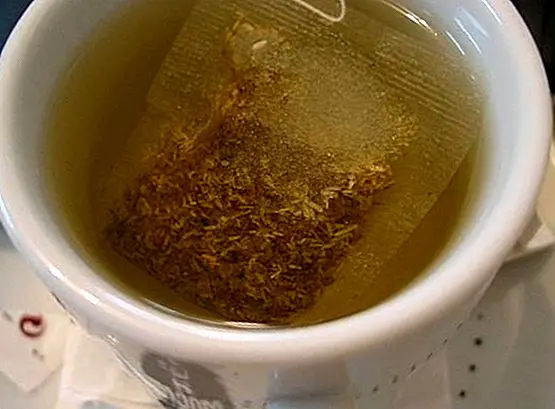Benefits and properties of eating a pear a day
The pear It stands out for being a very light fruit, especially rich in water, and also has very few calories, so it becomes an appetizing option simply delicious for a mid-morning snack or snack. This is linked, as we will see throughout this note, to its richness in minerals, so that we are facing one of the fruits that provides the most minerals. In short, and as we will see, the pear provides the following benefits: it is ideal to eat daily, is suitable for diabetics, helps eliminate toxins and purify, mineralizes the body, is suitable for slimming diets, useful for desinflamar the intestines…
The common pear is scientifically known by the name ofPyrus communis, and it is a fruit of varied species belonging to the genus Pyrus. There are, in fact, more than 30 varieties and types of pears, which have different colors and shapes, different textures and also different flavors.
It is a fruit that the smallest of the house like for its sweet taste and juicy and meaty texture. In fact, it becomes one of the first fruits that are usually given to babies when they start with complementary food for the preparation of their first compotes and fruit porridge (you can read more about 3 fruit compotes for babies from 4 months).
Nutritional properties of the pear
Although there are different types and varieties of pear, each of which has its own properties and benefits from a nutritional point of view, the truth is that, in most cases, many of them share the same nutritional qualities.
The pear is especially rich in water. In fact, 100 grams of pear provide about 83 grams of water. In addition, as we mentioned before, they stand out for their low caloric content: they barely contribute 49 kcal., And only 0.1 grams of fat.
It stands out, as we will see in the nutritional information table of the pear, for its mineral richness. For example, it provides interesting amounts of potassium, phosphorus, iron, calcium and sodium. While, among the vitamins, the presence of vitamin C, and to a lesser extent vitamins of the B complex (such as B1, B2 and B3) stands out.
It emphasizes its low content of fat and calories, and its high contribution in water, minerals and some vitamins (such as vitamin C).
On the other hand, it is a fruit whose consumption is recommended in people with diabetes, since despite being an originally sweet fruit (in terms of taste), it has a low glycemic index, which means that it helps to lower sugar levels in blood, not causing high glucose peaks.
Nutritional composition of the pear per 100 grams
| Composition | Amount (gr) |
| Kcal. | 46 kcal |
| Carbohydrates | 10,0 |
| Proteins | 0,6 |
| Fat | 0,1 |
| Fiber | 3,0 |
| Water | 83,71 |
| Minerals | Amount (mg) |
| Sodium | 2 |
| Potassium | 128 |
| Calcium | 9 |
| Match | 13 |
| Magnesium | 8 |
| Iron | 0,3 |
| Zinc | 0,1 |
| Vitamins | Quantity |
| Vitamin A (retinol) | 5 μg |
| Vitamin B1 | 0,03 mg |
| Vitamin B2 | 0.04 mg |
| Vitamin B3 | 0.2 mg |
| Vitamin B6 | 0.02 mg |
| Vitamin C | 5 mg |
| Vitamin E | 0.4 mg |

What benefits does eating pear offer us daily?
An ideal fruit to eat daily
There is no doubt that the pear is one of the best fruits to consume daily, along with apple or orange, to name just a few (although the truth is that, in reality, any fruit is ideal to consume every day for its qualities and Benefits.
In the particular case of the pear it becomes an appetizing option for its texture and meatiness, as well as for its flavor. As we have seen, it is especially rich in water and minerals, while its low caloric content can be consumed in slimming diets.
Suitable for diabetics
As indicated, pears have a low glycemic index. The glycemic index (GI) of a food is a useful measure to know if a certain food can elevate or not the levels of glucose in the blood. So, if a person has diabetes, the ideal is to consume foods with a low glycemic index, as they slowly increase the levels of sugar (glucose) in the blood.
In fact, for a diabetic, foods with a high GI are not necessarily harmful, but they can greatly hinder the control of the disease. In the case of the pear, it contains a glycemic index of 30. That is, its glycemic index is low (it is considered low from 0 to 55).
Helps eliminate toxins and purify
Thanks to its richness in minerals (especially potassium), water and pectins, the pear is fundamentally useful to help correct and proper intestinal cleansing, by helping our body to be able to absorb toxins and eliminate them more easily later.
In addition, its fiber content is an interesting fruit in case of occasional constipation, helping to improve and regulate intestinal transit.
Mineralize the organism
The pear is considered one of the fruits that contributes the most minerals. Specifically, a greater amount of alkaline minerals. Among other aspects, as we have seen, it provides interesting amounts of potassium, magnesium, calcium and iron. For this reason, it is a suitable fruit in case of edema and fluid retention.
Adequate in slimming diets
The pear is a fruit that can be part of a diet perfectly thin (and, ultimately, any type of diet or food, thanks to its richness and the different benefits and properties it provides). Specifically, its low caloric content together with its low fat intake, becomes a delicious option as a snack.
1 small pear (148 grams) provides only 84 calories. While a medium pear (178 grams) provides 101 calories.
The most important properties of the pear, in short
The pear is, next to the oranges and apples one of the fruits more refreshing, sweet and tasty that exist, and important for the health of people who eat it especially for their Benefits Y properties.
It is important, for example, its high water content, so it is highly recommended in people who follow slimming diets, and even depurative diets, since it helps eliminate excess toxins.
Like many fruits, has fiber both soluble and insoluble that in addition to helping to maintain a healthy digestive system, favors the elimination of high cholesterol and regulates intestinal function.
It is rich in vitamins of group B, C and E, and also has a high content in calcium, iron, and potassium, so it is ideal for both the smallest and for people who need debug your body.
It contains in turn organic acids that help relieve stomach pains, and promotes digestion since it stimulates the secretion of gastric juices.
In short, the pear stands out for:
- Rich in vitamin C, E and group B.
- It contains potassium, calcium and iron, among others.
- It helps in digestion and to maintain a healthy digestive system.
- Relieves stomach pains and diarrhea, regulating bowel function.
Bibliographic references:
- S. Renaud et al. (1982). Table of composition des aliments.
- Grande Covián F. Nutrition and health. Ed. Topics of Today.
- Khalid Hussain Janbaz, Muhammad Zaeem Ahsan, Fatima Saqib, Imran Imran, Muhammad Zia-Ul-Haq, Muhammad Abid Rashid, Hawa Z. E. Jaafar, and Marius Moga. Scientific Basis for Use of Pyrus pashia Buch.-Ham. ex D. Don. Fruit in Gastrointestinal, Respiratory and Cardiovascular Ailments. PLoS One. 2015. doi: [10.1371 / journal.pone.0118605]
- Holly Reiland, BS and Joanne Slavin. Systematic Review of Pears and Health. Nutr Today. 2015 Nov. doi: [10.1097 / NT.0000000000000112]
Images of Istockphoto. This article is published for informational purposes only. You can not and should not replace the consultation with a Nutritionist. We advise you to consult your trusted Nutritionist. ThemesFruits


